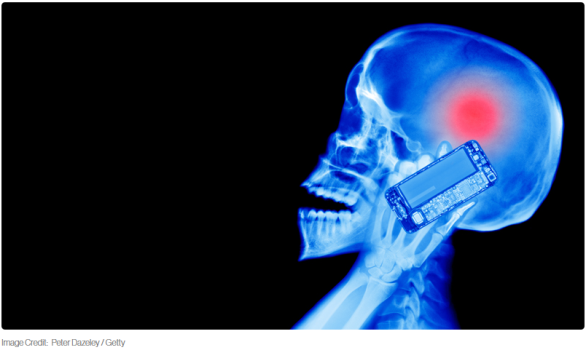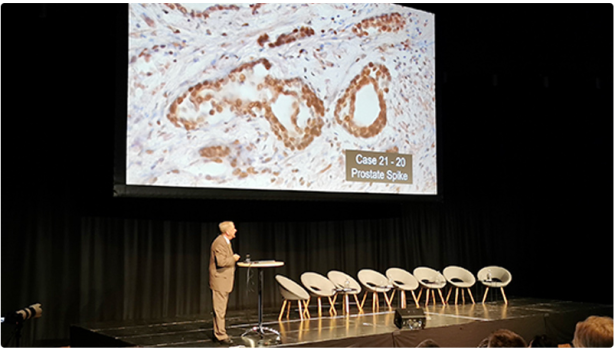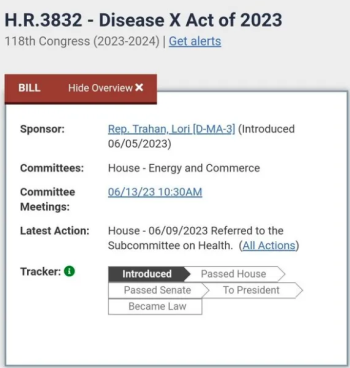No More Research on Cellphone Radiation and Human Health, Government Says
by Suzanne Burdick, Ph.D. | The Defender
January 19th 2024, 3:50 am
The National Toxicology Program said it no longer plans to study the effects of cellphone radiation on human health, citing technical challenges and lack of resources — even though its own $30 million study found evidence of cancer and DNA damage.
 The National Toxicology Program (NTP) has no plans to further study the effects of cellphone radiofrequency radiation (RFR) on human health — even though the program’s own $30 million study that took about 10 years to complete in 2018 reported evidence of cancer and DNA damage.
The National Toxicology Program (NTP) has no plans to further study the effects of cellphone radiofrequency radiation (RFR) on human health — even though the program’s own $30 million study that took about 10 years to complete in 2018 reported evidence of cancer and DNA damage.
The NTP said in an updated
January 2024 fact sheet that it was abandoning further investigation because “the research was technically challenging and more resource-intensive than expected.”
For decades, the NTP has been the premier governmental testing program for
pharmaceuticals,
chemicals and
radiation, according to
Devra Davis, Ph.D., MPH, a toxicologist and epidemiologist who served on the board of scientific counselors for the NTP when it was launched in the 1980s.
Commenting on the news,
Davis said, “It is the ultimate arrogance and folly to stop doing
research on this major growing environmental pollutant, precisely when we have ample evidence of harm.”
Davis has authored more than 200 peer-reviewed publications in books and journals, ranging from The Lancet to the Journal of the American Medical Association.
https://www.givesendgo.com/savealex
In February 2023, she and her colleagues published a
review of more than 200 studies that
linked wireless radiation to negative biological effects including
oxidative stress and DNA damage,
cardiomyopathy,
carcinogenicity,
sperm damage,
memory damage and
other neurological effects.
They will soon publish a “major new article” in
Environment: Science and Policy for Sustainable Development journal about “new science” on RFR and call for precaution, she said.
Davis — who also is the founding director of the Board on Environmental Studies and Toxicology of the U.S. National Research Council at the
National Academy of Sciences and the founder and president of
Environmental Health Trust — called out the U.S. government for failing to ensure that
wireless radiation is safe:
“The government’s decision to stop funding research on cellphone radiation is consistent with the Chinese proverb ‘If you don’t want to know, don’t ask.’
“The US government has a variation of that in the policy of, ‘don’t ask, don’t tell.’ If you don’t want to know whether cell tower radiation is having a biological impact, stop doing the research!”
Miriam Eckenfels-Garcia, director of
Children’s Health Defense’s (CHD)
Electromagnetic Radiation (EMR) and Wireless program, told
The Defender:
“Discontinuing government-funded research because it is ‘technically challenging’ and ‘resource-intensive’ is not what we expect from government agencies that are supposed to protect people from the harms of big industry.
“This research is important so that people can make informed decisions when it comes to the use of technology.”
W. Scott McCollough, lead litigator for CHD’s EMR cases, agreed. “I am concerned that the absence of evidence will be contorted into a claim of evidence of absence.”
As of early last year, the NTP was still conducting RFR research. A
February 2023 fact sheet said scientists had “overcome several technical issues” and developed a better system for exposing animals to RFR for their studies.
NTP said researchers were “now making progress” on four research goals:
- Determining the impact of RFR exposure on behavior and stress.
- Conducting physiological monitoring, including evaluation of heart rate.
- Investigating whether RFR induces heating.
- Further evaluating whether RFR exposure causes DNA damage.
In its January 2024 fact sheet, the
NTP reported the researchers had “tested the new exposure system … in vivo rodent studies” and that their research was “complete.”
The NTP did not say whether the researchers had achieved those four research goals and, if so, what the results were. It did, however, make clear that its previous studies — which used 2G and 3G cellphones — “do not apply” to 4G or 5G technologies.
The Defender reached out to NTP’s press office for clarification about why the new fact sheet appears to contradict the
NTP website (updated Jan. 8, 2024) on cellphone radiation research which says NTP still has “current research efforts,” however NTP did not respond by our publication deadline.
The NTP’s discontinuation of its RFR research suggests the U.S. government has no intention of studying the possible biological effects of 5G.
--------------------continued below--------------














